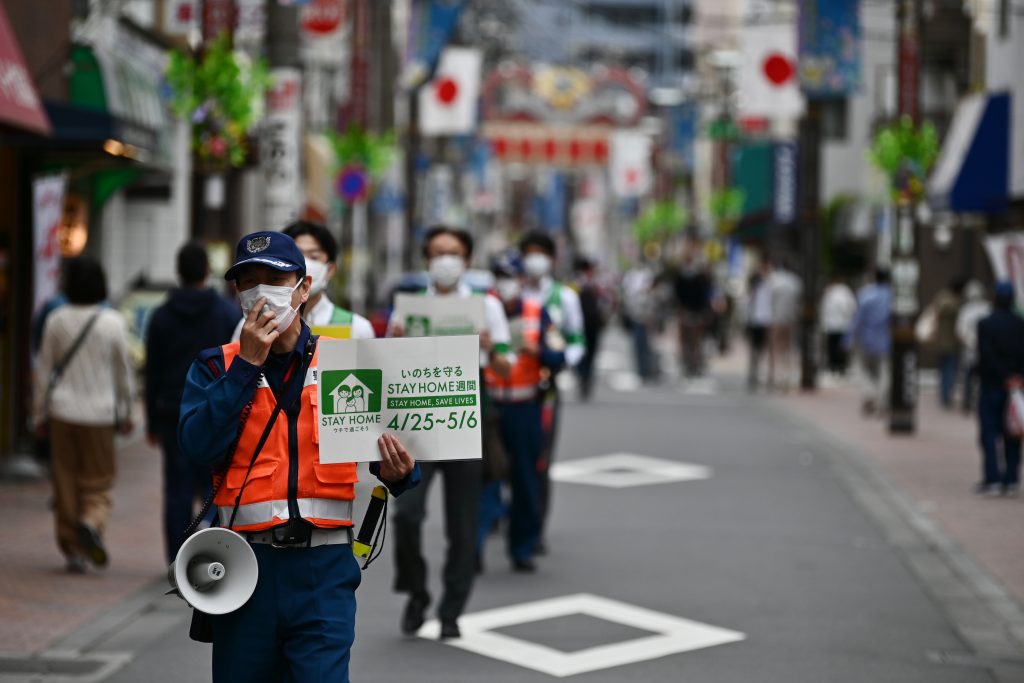
- ARAB NEWS
- 19 Jul 2025

There is a growing trend in Japan for people to harass those who do not comply with authorities' stay-at-home and business suspension requests amid the coronavirus epidemic.
Stores that remain open and vehicles with license plates from out of the prefecture are among targets of attacks by people called "jishuku keisatsu," or "restraint police."
Experts argue that such acts should not be permitted even if they are done based on a sense of justice.
In late April, a stranger posted a note on Maboroshido, a traditional Japanese sweets shop in the city of Yachiyo, Chiba Prefecture, to the east of Tokyo. The note demanded that Maboroshido suspend operations and not gather any children, despite the store having been closed since late March.
"I was very scared," Maboroshido owner Yasuko Murayama, 74, said. "I hope people would do things to lighten each other's spirits instead of something like this."
In Tokyo, some izakaya pubs and live music bars that have shortened their operating hours in line with requests for restraint have also been targeted with threatening notes.
"Are you still going to continue operations under these circumstances?" one such note asked. Another read: "Please close. If I catch you (open) again, I'll call the police."
In Tokushima Prefecture, western Japan, vehicles with out-of-prefecture license plates were damaged or fell victim to road rage, leading to a sticker reading "I am a resident of the prefecture" being sold as a protective measure.
Shinji Miyadai, a professor of sociology at Tokyo Metropolitan University, said that the psychology of restraint police is similar to that of bullies.
"They are the kind of people who want to feel safe by doing the same things as others during extraordinary times," he said. "Just like bullies, they experience jealousy toward others taking actions different from them and attack such people to relieve their insecurity."
"They must understand that different people are in different circumstances, and that the best course of action during emergencies may differ among people," he added.
"The freedom to run business and the freedom of movement are both rights protected by the Constitution," Keita Sekiguchi, a lawyer with expertise in the field of legal aid for businesses, said.
"Limiting the rights of businesses and movement must be as minimal as possible, based on the aim of the action, even if it is for a public purpose," Sekiguchi said.
"It is more effective for victims to reveal their damage to the public and gain allies, than to deal with harassers directly," he said.
JIJI Press